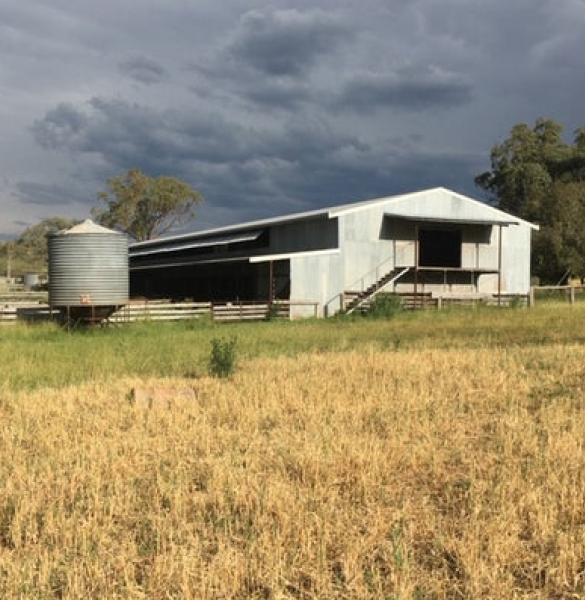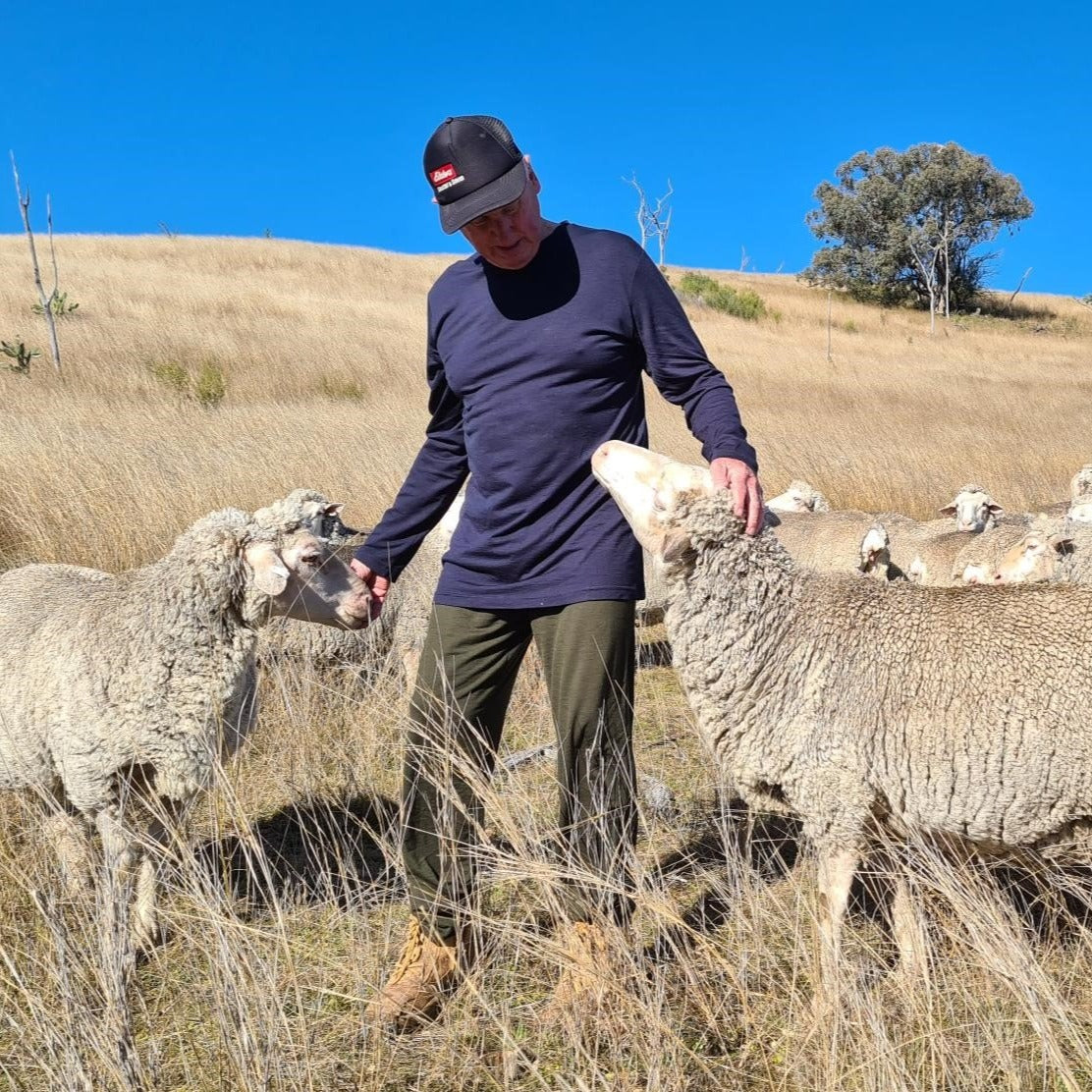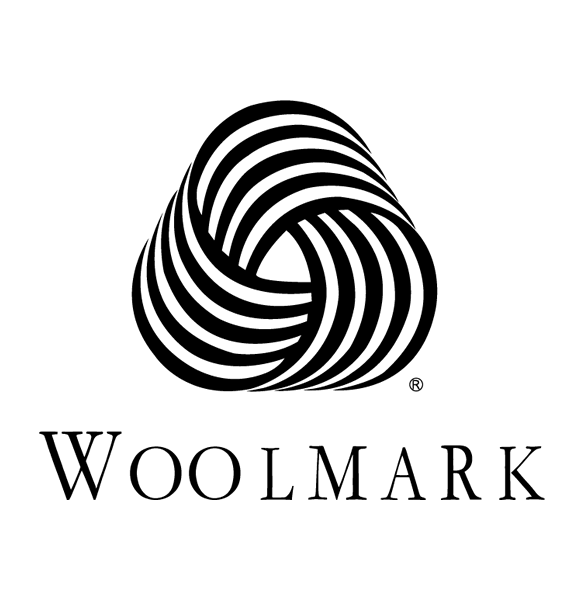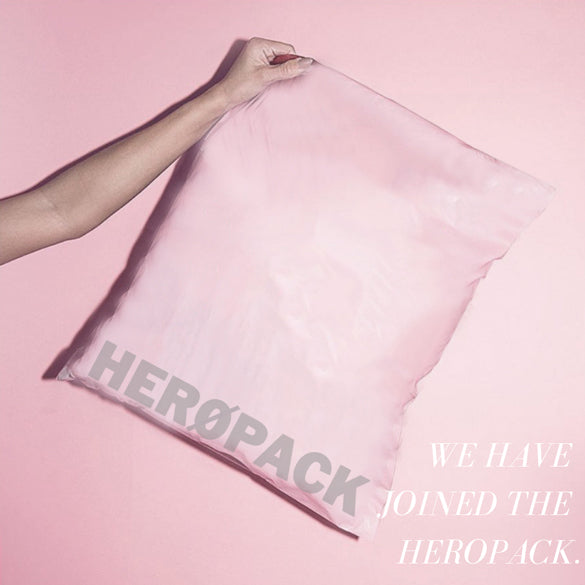Our Story

Our Farm
Our sheep have over 2000 hectares (5000 acres) of large paddocks to wander over. We have a very natural ecosystem, with mostly native grasses, shrubs and trees, which our Merino sheep have adapted to browse. We practice regenerative farming, where we graze a paddock, then rest it for a long period. We have natural creeks and springs for the sheep to drink from, and a safe modern shearing shed and sheep yards.

Our Sheep
Our modern Merino sheep produce 17-18 micron fine white Merino wool, are non-mulsed, and require few chemical drenches due to our farming practices, ability to browse native shrubs, and regular worm egg testing carried out on farm. We use Advanced Livestock Movement and Management methods to train our sheep to follow us quietly at a walk when mustering, which is essential with our large paddocks, gorges and timbered hills. Our farm is one of the earliest Australian farms to be certified by the Responsible Wool Standard. This globally recognised standard promotes animal welfare and sustainable land management, addressing the needs of sheep as well as the land they graze on. We are also SustainaWOOL and Authentico accredited.

Manufacture
Our fabric and garments are made in Victoria, Australia, and are 100% Australian Merino wool jersey of 18.9 to 19.9 micron, from non-mulsed sheep. They have a weight of 145, 170 or 200gsm, which is perfect for both winter and summer use.
- Woolmark
- Certified Organic Dyes
- Oeko-Tex 100 | which tests textiles for harmful substances
- ISO14001 | Low Environmental Impact Process
The Sleepy Merino store
In December 2021 our brick and mortar store was opened at 106 Byron Street in Inverell, next to Freckles Cafe. I am usually open most mornings, except for when we are shearing. If you are travelling to Inverell, text me on 0407455580 to check when I will be open.

Our Packaging
We are committed to reducing plastics in our environment. Our post satchels are fully compostable Hero Packs made from biodegradable materials, mainly corn starch and cassava roots. Any packing tape and labels used is also compostable.
To compost them at home, it’s best to cut them up and place in your compost bin (as “brown” materials). These will completely break down within 90 days in a compostable environment.
If you don't compost, your mailer can be sent to composting facilities to be properly broken down and composted. Some councils provide a green waste composting bin.
If your mailer ends up in landfill, it will still break down (with no waste and no methane production). It takes about 2 years rather than 90 days. In contrast, traditional plastic shipping mailers take 400 years or more to break down, and release deadly methane gas into the atmosphere.
To further minimise plastics we offer free reusable cotton bags at the Sleepy Merino store, markets, festivals and events.



 Log in
Log in
